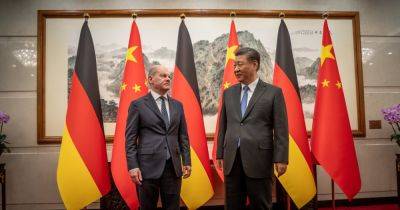How Germany is reshaping the world in era of US-China rivalry
02:36
Vladimir Putin deploys troops near Finland border, warns that Russia is ‘ready’ for nuclear war
02:03
‘Any change in Taiwan’s status quo must be peaceful,’ German Chancellor Olaf Scholz tells China
By all indications, Scholz’s upcoming visit to China is likely to seek to build on his constructive approach to diplomatic engagement. In this sense, he is not only resisting the approach to China favoured by the United States but could also facilitate a more durable Sino-American detente by re-emphasising areas of shared global interests.
Crucially, Germany is also eager to develop ties with other emerging middle powers in the Global South. Based on my recent exchanges with the German chancellor and leading strategists in Berlin, it’s clear that Europe’s largest economy is actively seeking comprehensive strategic partnerships with rising powers, especially India as well as key Southeast Asian nations such as Indonesia, Vietnam and the Philippines.
The ultimate aim is to underscore Germany’s active contribution to a rules-based international order, build a network of partnerships with fellow middle powers in the world’s most dynamic region and help create a pluralistic order that transcends the whims of any superpower.
It remains to be seen if Scholz will succeed in his global strategy, which rejects subservience to any superpower. What is clear is that few countries are better-positioned than Germany in promoting a constructive and collaborative global order against the backdrop of intensifying superpower rivalry.
Richard Heydarian is a Manila-based academic and author of Asia’s New Battlefield: US, China and the Struggle for Western Pacific, and the forthcoming Duterte’s Rise







